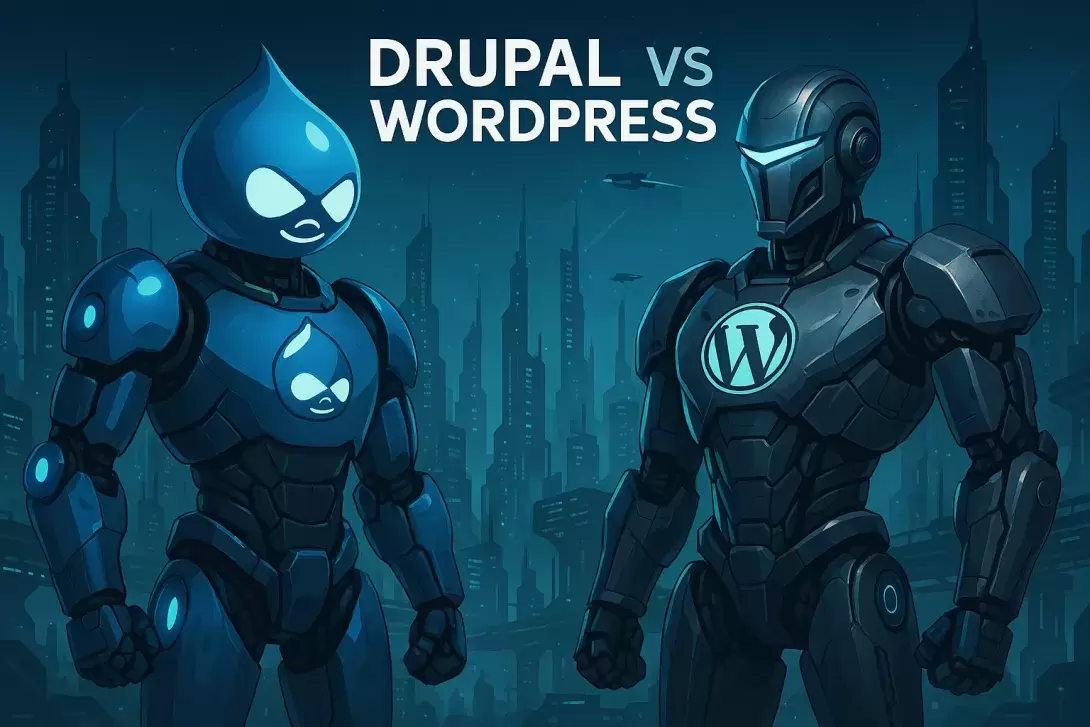Okay, let's break down WordPress and Drupal for a future-proof web application. Both are excellent choices, but they have different strengths and weaknesses regarding long-term maintainability. Here's a detailed comparison to help you decide:
WordPress
Strengths - Future Proofing:
Large Community & Ecosystem: WordPress has an enormous community. This means massive, readily available support, plugins, themes, and extensions. This community is constantly evolving.
Mature & Stable: WordPress has been around for a long time (since 2004) and is exceptionally stable. The core is well-tested and reliable.
Themes & Plugins: A huge library of themes and plugins covering almost any functionality imaginable. You can build almost anything you want with WordPress.
Migration: Easy migration of existing sites to a new WordPress site is straightforward.
SEO-Friendly: WordPress is inherently SEO-friendly, with built-in features and a large amount of SEO knowledge available.
Cost-Effective: WordPress can be significantly cheaper to set up and maintain than Drupal, especially in the beginning.
Weaknesses - Future Proofing:
Security: WordPress has historically been a more frequent target for security vulnerabilities. While WordPress has improved dramatically over the years, it’s still more prone to certain exploits compared to Drupal. Requires diligent maintenance and security updates.
Taxonomy & Content Management: While WordPress has improved, its content management system (CMS) isn't always the most robust for complex, hierarchical content structures.
Customization Complexity: Deep, highly customized themes can be challenging to maintain over time. It can become a maintenance nightmare.
Plugin Dependency: Relies heavily on plugins, which can introduce compatibility issues and potential security risks if plugins aren't updated regularly.
Drupal
Strengths - Future Proofing:
Modular Architecture: Drupal's core is built on a highly modular design. This means you can add, remove, or modify functionality without affecting the entire system.
Taxonomy & Content Management: Drupal is designed for complex content management. It offers robust taxonomies, relationships, and content editing tools that are incredibly powerful and adaptable.
Security: Drupal is generally considered more secure than WordPress due to its rigorous security measures such as advanced permission controls and its sandboxing approach (meaning it restricts what a piece of content can do).
Scalability: Drupal is built to handle large amounts of data and complex web applications. It’s easier to scale as your website grows.
Customization: Drupal's design system allows for extremely granular customization, making it easier to create a consistent brand experience.
Long-Term Maintenance: The modular design makes it easier to maintain and update over the long term.
Weaknesses - Future Proofing:
Steeper Learning Curve: Drupal is significantly more complex to learn and use than WordPress. It requires more technical expertise.
Cost: Drupal is generally more expensive to set up and maintain, especially if you need custom development.
Maintenance Overhead: Due to its complexity, Drupal requires more ongoing maintenance and administration.
Smaller Community: The community is smaller than WordPress's, meaning fewer plugins, themes, and support resources.
Here’s a table summarizing the key differences:
| Feature | Wordpress | Drupal |
| Complexity | Moderate | High |
| Learning Curve | Relatively Easy | Very Steep |
| Cost | Cost Effective | Higher Costs |
| Security | Moderate | High |
| Content Management | Good | Excellent |
| Scalability | Good | Excellent |
| Community | Large Scale | Medium Scale |
| Future Proof | Good (with updates) | Designed for IT |
Recommendation
For a future-proof project, Drupal is generally the better choice if you have the resources and expertise to manage it.
However, WordPress is still a very viable option, especially if:
- You're building a relatively simple website or a website with a smaller amount of content.
- You're on a tighter budget.
- You need to quickly get something online.
Ultimately, the best choice depends on your technical skills, budget, and the long-term goals of your web application.
We could give you more tailored advise, if you could tell me:
What is the purpose of your web application? (e.g., blog, e-commerce, portfolio, CRM, etc.)
What is your technical expertise level? (e.g., beginner, intermediate, experienced)
What is your budget for web development?
contact us on info@listberg.com

